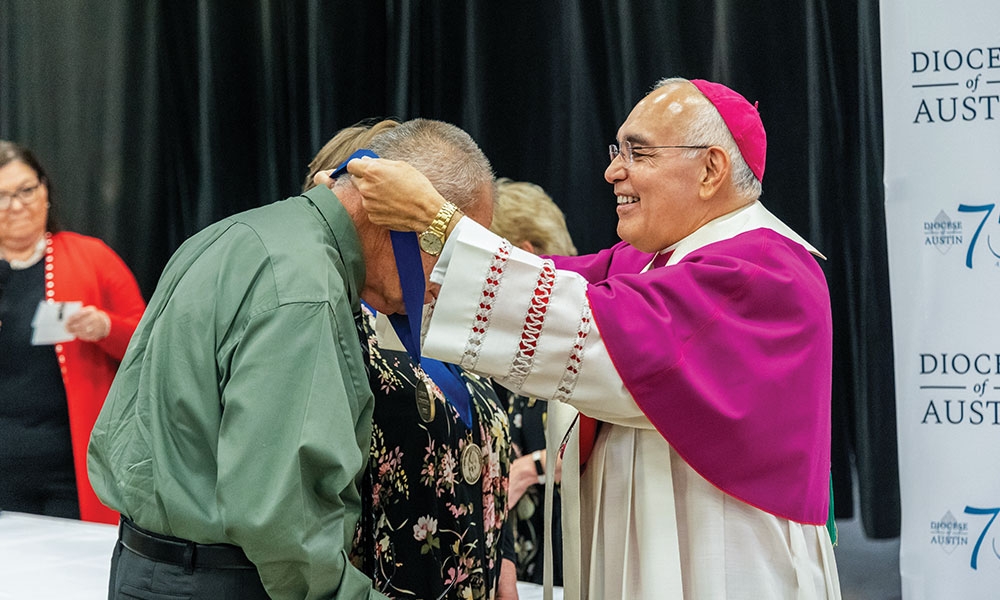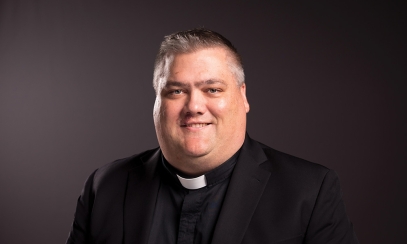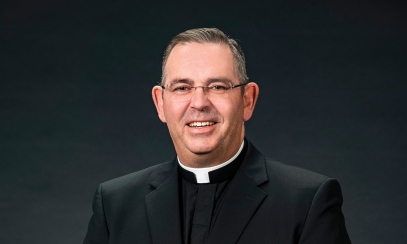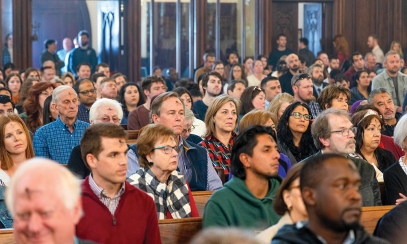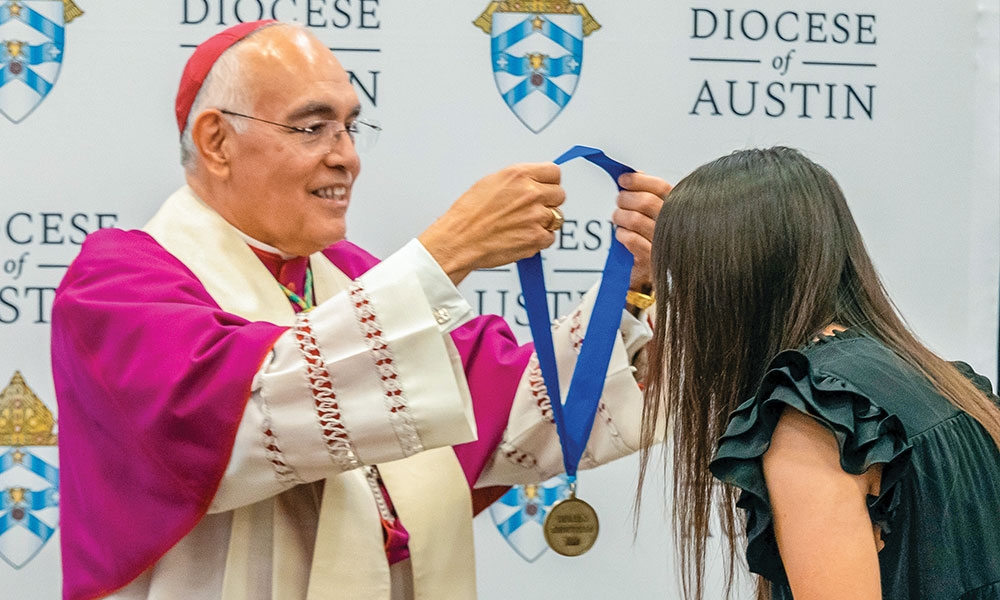
Celebrating those living out their baptismal call
Editor: Bishop Vásquez, you recently presented the 2023 Lumen Gentium Awards to lay people from across the diocese. What are these awards?
Bishop Vásquez: The Lumen Gentium Awards were instituted in 2004 by my predecessor, Bishop Gregory Aymond. He believed the laity needed to be recognized for their involvement and participation in the church. The Second Vatican Council’s Dogmatic Constitution on the Church
(Lumen Gentium) says the laity are given this special vocation: “to make the Church present and operative in those places and circumstances where only through them can it become the salt of the earth” (Lumen Gentium 33). So, it is through the aptly named Lumen Gentium Awards that we honor lay people (and a few deacons along the way) for their service in our parishes and in our diocese.
Every two years the pastors of our parishes and missions nominate laypersons who serve in exemplary ways, and then as the Diocese of Austin, we host a ceremony giving each person or couple a special award. The awards are a great opportunity for us to thank and recognize these men and women for their service in the church and to honor them for their dedication to their Catholic faith.
Editor: How does the role of the laity differ from the role of our priests?
Bishop Vásquez: At baptism, we are all conformed to Christ as priest, prophet and king. The common priesthood of the laity differs from the ministerial priesthood of those who serve as priests. According to the Catechism of the Catholic Church, “While the common priesthood of the faithful is exercised by the unfolding of baptismal grace — a life of faith, hope, and charity, a life according to the Spirit, the ministerial priesthood is at the service of the common priesthood” (CCC 1547). Therefore, both the laity and clergy work together at the service of the mission of the church. Our priests are bringing Christ to the world as they consecrate the Eucharist and celebrate the sacraments. Our laity bring Christ to the world through their jobs, their family life, their volunteering and their social engagement.
Editor: What does it mean to be priest, prophet and king?
Bishop Vásquez: The priestly responsibilities of the laity include how one practices holiness through prayer, the celebration of the Eucharist and living one’s vocation well. No matter what their career or job may be, the laity bring sanctification to the place they live and serve.
The prophetic role of the laity is to speak the truth, speak against injustice, and speak on behalf of those who have no voice and those who need assistance and care.
The kingly role of the laity is about service in the community and through charity. The laity are essential in working in the local food pantry, visiting the sick or the homebound, teaching religious education to children or young adults, serving on the parish council as well as many other areas where we are called to serve.
At the end of Matthew’s Gospel, when Christ says, “Go, therefore and make disciples of all nations,” (Mt 28: 19) he was speaking to all disciples, not just ordained priests. This is why it is important to recognize the laity with these Lumen Gentium Awards. The honorees as well as countless lay men and women across our diocese are generously offering their time and talent to make a difference in the life of their faith communities and society.
Editor: In the past, I have heard you encourage the lay faithful to find their replacement. What do you mean by that?
Bishop Vásquez: One of the things I've noticed for many years — whether it was in my own parish or in the parishes in our diocese — is that the same people have been doing the same ministries for years. I am grateful that people are so dedicated, but what happens on the day they can no longer do this ministry? We must invite others to get involved.
For instance, if you are a lector and meet a fellow parishioner who would make a good lector, invite them to the ministry. The same is true for those who teach religious education, or sing in the choir or those who are sacristans or altar servers. This goes for priests as well! As priests, deacons and religious we must actively encourage others to consider the religious life or priesthood or diaconate. This is what I mean about finding our replacement.
We want to involve everyone in the ministry of the church, so that we are fully living out our baptismal call. As Pope Francis lamented early on in his pontificate, it is sad when people come to Mass, sit in the pew and then go home, and nothing really changes. As Catholics, we are called to be at Mass and to participate fully and to offer ourselves to the Lord.
The minimalist view is to say being a priest means saying the Mass rather than offering it. So too we are suffering from a minimalist viewpoint if we think our main duty as lay Catholics is merely to be at Mass. As the priest offers the bread and the wine to become the body and blood of Christ, the laity also offer their lives to God in that bread and that wine. Whatever struggles we are having, whatever joys we are experiencing, bring all those to Mass and offer them in the Eucharist.
Editor: What is your prayer for the laity in our diocese?
Bishop Vásquez: My prayer is taken from the Roman Missal; it speaks beautifully and eloquently about the laity of our church: Oh God, who have sent the power of the Gospel like leaven into the world, grant that your faithful whom you have called to live amid the world and its affairs, may be fervent with the Christian spirit and through the tasks they carry out in this present age, may constantly build up your kingdom. Through Christ, Our Lord, amen.
Bishop Joe S. Vásquez
The fifth bishop of the Austin Diocese, which is home to more than 700,000 Catholics. For details, visit the diocesan website at austindiocese.org.

